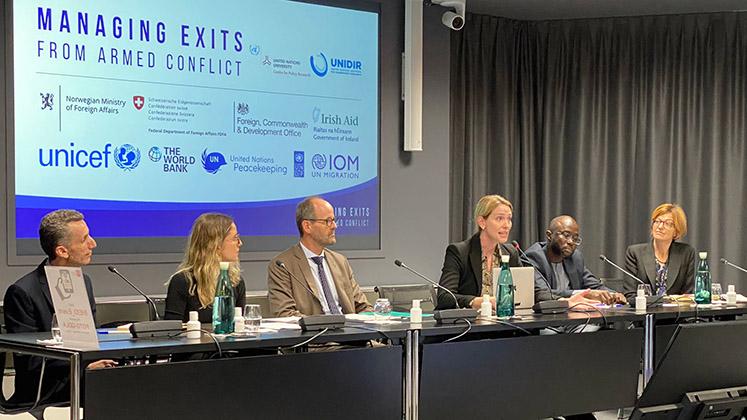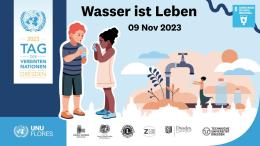Geneva / New York 3 November 2022 – Climate change has long been viewed as a threat multiplier that exacerbates fragility and conflict risks and new data suggests emerging evidence of a connection between climate change and armed group recruitment. The data was collected in climate-vulnerable conflict-affected areas in Iraq, Colombia, and Nigeria and was presented at Geneva Peace Week (31 October–4 November) by researchers from the Managing Exits from Armed Conflict (MEAC) initiative, a collaboration between the UN University Centre for Policy Research (UNU-CPR) and the UN Institute for Disarmament Research (UNIDIR).
Large-scale surveys and qualitative research carried out by UN researchers in each location revealed that, aside from being widely felt and experienced, climate change is making it increasingly difficult for people to maintain their livelihoods farming, herding, and fishing. Without a source of income, there are indications that people are turning to armed groups.
In Iraq, ranked the fifth most at-risk country for climate breakdown, climate change is widely felt across the country. Certain localities are particularly hard-hit, with serious implications for conflict dynamics. In Tal Afar, of those respondents who knew people whose livelihoods were impacted by climate change, 29 per cent knew of people who had joined a range of armed groups as a result. This included not only ISIL (which has historically exploited grievances linked to drought and agricultural loss) but also potentially groups that mobilised to combat ISIL.
In Colombia, increased deforestation, mining, and other forms of human-induced environmental degradation were reported in surveys across the country’s diverse geography. Of respondents who had experienced economic difficulties due to these changes, 14 per cent knew of someone who had joined an armed group as a result. In a survey of 139 former members of armed groups, including the FARC-EP, ELN, and AUC, 19 per cent of those who reported that human-induced environmental degradation had increased in frequency or severity in their communities said these were among the reasons that they themselves had become involved with an armed group.
In Nigeria, ongoing large-scale surveys across Borno, Adamawa, and Yobe states found that of those respondents who knew people that experienced livelihood challenges due to climate change, 15 per cent knew someone who joined Boko Haram as a result. Indeed, when former associates of Boko Haram themselves are asked about the impact of climate change on their trajectory into the group, 16 per cent of those who acknowledge climate change-related difficulties, said these were part of the reason they became involved.
Reflecting on the research and its implications, Dr Siobhan O’Neil, Program Manager of the MEAC Initiative, commented: “The evidence suggests that to be effective, efforts to prevent and respond to armed conflicts must be climate-sensitive. Climate change is not just an international security issue, it is a human security issue that requires an urgent, holistic, and multi-sector response.”
MEAC is a multi-year, multi-partner collaboration that aims to develop a unified, rigorous approach to examining how and why individuals exit armed conflict and evaluate the efficacy of interventions meant to support their transition to civilian life. MEAC gathers data to inform evidence-based policy and practice. MEAC was never intended to be a climate security research project, but to truly understand trajectories into and out of armed groups in the countries where it works, it is impossible not to consider climate change’s effects. More information on the project, its UN partners, and donors, can be found on the UNIDIR and UNU-CPR websites.
For more information contact Jack Durrell, Head of Communications at UNU-CPR: durrell@unu.edu / +1-929-289-3632.



![smart2[1].png](https://unu.edu/sites/default/files/styles/card_view_small/public/2024-04/smart2%5B1%5D.png?itok=_-ZcLOM5)
